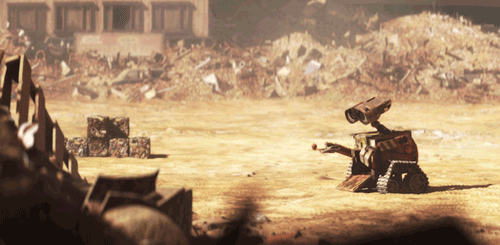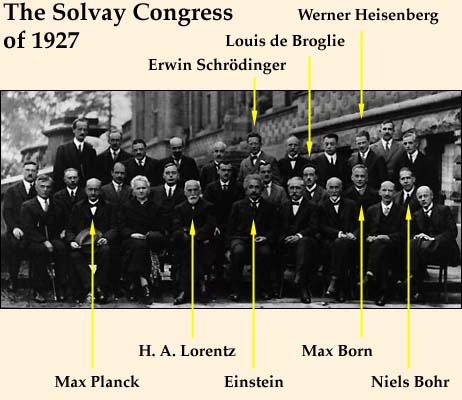Why Artificial Intelligence Should Take Away Our Jobs
Published on 27 Apr 2016 ⸱ 10 min read ⸱ 85 views

Artificial Intelligence has become quite a buzzword in the recent past. Most large-ish companies are looking to implement a layer of artificial intelligence on top of their existing technology platforms to automate a considerable amount of their business processes. IBM's Watson and Google's AlphaGo are known to be two of the more highly complex and successful implementations of Artificial Intelligence. Advances in Artificial Intelligence technology is best illustrated by examples of IBM Watson in Jeopardy and Google's AlphaGo against Go world champion Lee Sedol. Artificial Intelligence even became a hot topic at the World Economic Forum, 2016 where world leaders tried wrapping their heads around which jobs will be replaced by Artificial Intelligence and how soon it will happen.
It is also worth noting that as Artificial Intelligence takes away our jobs, it will also increase the wage disparity currently prevailing in the world. There will be reduced dependence on humans to do the more laborious, time consuming work e.g. research, documentation, customer service etc. As that happens, the top management will end up becoming richer while the lower rung of the workforce will either get a lower pay or lose their jobs entirely. The phrase "The rich become richer" will be more pronounced that what it already is (is it possible?)
All of this is inspiring and worrisome, but let's take a step back and understand what artificial intelligence really is. I've scoured the internet to get a consensus definition of AI, but none exists. The Oxford dictionary defines it as such:
Artificial Intelligence: The theory and development of computer systems able to perform tasks normally requiring human intelligence, such as visual perception, speech recognition, decision-making, and translation between languages.
This definition, according to me, is a very superficial definition of what AI truly is and does. I prefer to use the definition below, coined by Claudson Bornstein, Assistant Professor, Computer Science, The Federal University, Rio De Janiero, Brazil cited from Eugene Fink's university page.
Artificial Intelligence: The Study of Common Sense
Such a simple and eloquent definition, in such few words. It covers virtually all of AI and even more.
However, don't take it from me. For a better (read "scientific") understanding of the science of artificial intelligence and intelligence in general, head over to John McCarthy's (considered one of the fathers of Artificial Intelligence) explanation on the topic where he answers some basic questions on AI and then goes deeper into the subject.
Heading over to my argument of why AI should take over our jobs.
Humans are known to posses the most advanced intelligence system in the known universe - Our Brain. Our brain has gone through 7 million years of evolution to become the most sophisticated thinking beings. Our source code is so complex, we have still not been able to figure it out. No other living and non-living thing in our known universe is known to have thinking and processing capabilities that come anywhere close to what humans possess. Why then, should this highly evolved, complex part of the human body be wasted in doing mundane, routine tasks that require no thought process to be executed? Isn't it a wasteful use of 7 million years' worth of evolution? I often tell people, the smartphone that we hold in our hands has gone through decades of serious technological advances, many technological barriers have been broken to achieve such an advanced machine in the palm of our hands. 1000's of people have worked tirelessly to build various parts that have converged to make that smartphone. And we use it to play Candy Crush. What an epic anti-climax! Moving on, we often work in auto-pilot mode i.e. no thought application while working, which, according to me, is the #1 resource being wasted. This leads to wasting other resources that have led to a serious threat to our collective existence.
Human's, according to me, are not meant to do routine, mundane tasks that require no application of their grey cells. Of all the things in the universe, why is it that only our Human Brain has evolved to become so intelligent? So sentient? I believe, Human's are further meant to develop their mental prowess and apply it to the betterment of humanity and the observable universe in general. Find answers to questions that are beyond our six senses. Furthermore, ask pertinent, quality questions that compel our collective generations to search for answers.
What comes to us Human's as "common sense" is a capability not possessed by any other known being. What's even more fascinating is that this "common sense" is extremely difficult to reproduce on an inanimate object i.e. robots/machines. Even after decades of research by people that actually make use of their brains, we've not even come close to emulating the power of the brain in as small a mass. Some hypotheses suggest that we're at last 50-75 years from emulating the human brain. If not 100.
My estimate would be ~30-40 years from 2016. This is on the back of pace of technological advances made in just the last 30 years and the rephrased version of Moore's law. There will be much more impactful technological advances invented/discovered in the future. The only question is the speed at which these advances will take place.
This brings me to the final part of my argument: Which jobs should be taken over by AI
1. Driving (More importantly - Public Transportation): I have a couple of arguments why driving should be handled by automation/AI.
Firstly, people hire drivers to drive them for an hour to get to work & an hour to get back home. In the interim, these drivers literally do nothing more than play candy crush (I hate this game Candy Crush) on their phones or watch a movie. Assuming an average work day is 10 hours (including travel), that's 8 hours of absolute waste of that driver's time and brain power. Think about it, if only their time was put to better use, the wonders that could be achieved in our world. It's just that they did not have the resources (usually money) to educate themselves, to be able to secure a better job
Secondly, we're all more than aware of the stats around people killed due to negligent driving & driving under influence of substances. All these deaths can be eliminated if the errors in driving are not left up to humans to correct.
Lastly, if self driving technologies were introduced in public transportation, think about the efficiency that could be introduced in our road networks. Lane discipline would be followed, transportation could be aligned in places of crises and emergencies, redundancy could avoided (if transportation breaks down, it can be easily replaced), transportation can double up as delivery agents in down time. The possibilities are endless. Elevator Men: This is another place where I see human resources being blatantly abused. Cheap labour is brought in to fuel our egos. It is absolutely ridiculous to have an attendant in my elevator just to press a button for me. Are you kidding me? Do I even need to argue this? Actually, why even automate it, Press the damn button, bigot!
2. Traffic Management: Traffic management, today, is largely a very manual task involving inefficient traffic cops. The signaling system is automated to the extent that the indication will change based on a periodic basis. Like clockwork. But it's not smart. It is currently not equipped with sensors (visual or otherwise) and a compute section to learn traffic patterns over time, to change signal indicators to manage traffic more efficiently. Imagine the time saved if a signal indicator was "smart".
3. Manufacturing / Construction / Heavy Industries: Construction is an area, where I truly believe, artificial intelligence/Automation should take away our jobs. Lives are lost at construction sites due to negligent practices, inadequate safety precautions and humans being made to work in generally hostile environments. These hostile environments lead to severe occupational hazards that are rarely talked about. Moreover, the situation is not getting any better. As cheap labour is sourced from poor countries where living conditions are pathetic, it's unlikely to get better. Automating build schedules, construction drones working in tandem to build stronger structures in lesser timelines. The cost of construction can be reduced drastically, albeit over time, in iterations.
4. Healthcare: I'm hopeful of artificial intelligence/automation in Healthcare for one reason and one reason only - Lower Cost. Cost of healthcare is absurd as of today. The less fortunate are unable to afford a decent healthcare system for lack of money. It beats me. We're all on this planet to make it better for each other. Financial situation of a person cannot and should not dictate a persons right to basic healthcare. Doctors, hospitals, governments - the whole system is in a miserable condition today. All to feed man's ego. You may argue that providing good healthcare services is not easy and it requires serious knowledge and skill. How do you explain the countless instances of wrong diagnosis, mistakes during operations often leading to fatalities? Medical Errors caused by Human's is the third leading cause of death in the US only after heart disease and cancer! Please don't get me wrong, I'm not taking away any credit from doctors and nurses that are committed to the vocation of treating a sick person. That said, artificial intelligence systems can provide better diagnostics, seamless data integration, smart pre and post operation analysis. All of this distributed to the world's hospital networks to leverage off of collective data. The power and potential of such systems is immense, where new treatments can be discovered, operation practices and methodologies can be improved upon.
These were a couple of areas where I've had initial thoughts around with Artificial Intelligence as the backbone. Of course there are endless use cases of such technologies, most of which I've barely scratched the surface of. Cost of human error in any industry can be made close to negligible. Human's are thinking beings being made to do tasks that do not require any thinking - that's what I'm against. Tasks like those are areas where I think artificial intelligence should take the wheel (geddit?). Using our collective human intelligence for the betterment of beings in the universe? Imagine the benefit for everyone!
Another question we will then have to ask ourselves is, What will Human's do if artificial intelligence does everything for us? That's a question that I keep trying to find answers to as well. To be honest, till date I've been able to find none. But until I do, I will keep looking.
Onward.
Aside, while you cannot accurately quantify genius/intelligence, imagine how long it will take to artificially reproduce the collective genius of the minds in this one photograph.

Update (7th May, 2016): Medical errors are the third leading cause of death in the US, only after heart disease and cancer.
Update (28th May, 2016): Artificial Intelligence in healthcare will see a “dramatic market expansion” in the next couple of years, with the potential to reduce the cost of medical treatments by half across the board
Note: All blogs posts till 2022 were migrated to this platform (react+next+tailwind). While all efforts were made to migrate wihtout any loss, the migration lost some images and broke a bunch of links in old posts. If you spot anything amiss, please notify me?